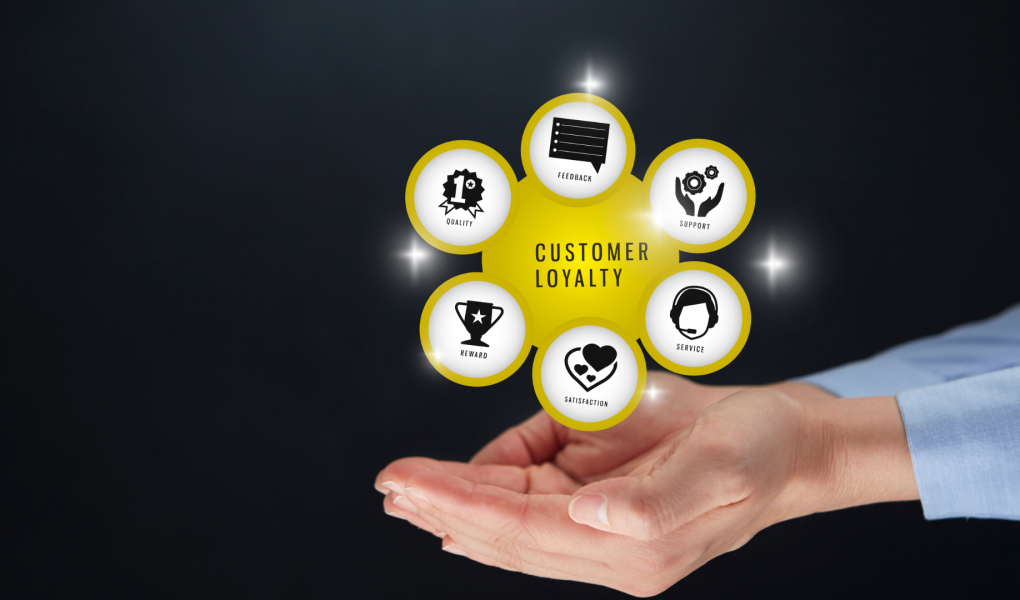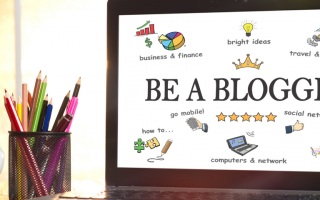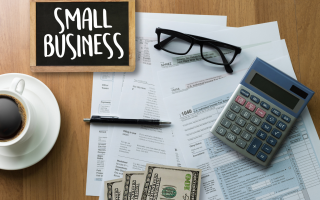More often than not, business owners are looking to find ways to increase their customer loyalty and build more relationships with their customers. In this article, we explain what customer loyalty is, how to build a loyal customer base, and what strategies you can use to do so.
What is Customer Loyalty?
Customer loyalty is one of the most important aspects of the business. When you have loyal customers, they are more likely to return and refer your business to others. There are a few things you can do to ensure that you have loyal customers.
Customer loyalty is the degree to which customers are likely to return to a business or continue using its products and services. Many factors can contribute to customer loyalty, including customer service, product quality, and value.
Customer Service
One of the best ways to gain customer loyalty is through customer service. If your employees are knowledgeable and responsive, they’ll be able to address any concerns or questions that customers may have. Additionally, providing useful information about your products or services (such as FAQs) will help customers make informed decisions about buying from you.
If your customers feel that they can always count on you to help them out, they will be more likely to remain loyal. Make sure that your customer service team is available 24/7, and be willing to answer any questions or solve any problems that your customers may have.
Effective Marketing
Effective marketing is the linchpin for both acquiring and nurturing customer loyalty. It’s not limited to just attracting new patrons but also hinges on fostering their return. A robust marketing strategy encompasses consistent branding, engaging content, and personalized experiences, creating a harmonious blend that ensures your customers keep coming back. By understanding their unique qualities, you can tailor your marketing efforts to forge a deeper connection. As part of your marketing strategy, it’s wise to leverage both online and offline methods, optimizing your reach and impact. In this context, the use of print marketing materials can be a powerful tool. Specialized print materials can provide a physical reminder of your brand, creating a lasting connection. They also allow you to create an immersive experience, conveying your message in a more personal way. If you’re seeking top-notch print marketing services, consider taking the help of commercial printing services in Billings, MT, or in your locality to convey your brand’s message effectively. A professional printing service can provide you with high-quality materials at affordable rates. They can also help to ensure that your print materials are delivered on time and within budget.
If you’re in a personable field of work such as being a doctor or a dentist, then collaborating with experienced medical and dental marketing consultants could provide valuable insights and strategies to create compelling marketing campaigns that build trust and foster loyalty among your customer base. Similarly, in the highly competitive realm of e-commerce, effective marketing is a game-changer for building and retaining a loyal customer base. Online retailers can harness the power of data analytics to gain insights into customer behavior, preferences, and purchase history. Remember, the key lies in delivering exceptional value and consistently exceeding customer expectations, ultimately turning one-time buyers into loyal advocates for your brand.
Product Quality
Another key factor in gaining customer loyalty is maintaining a high level of product quality. If your products are of good quality, customers will be more likely to recommend you to their friends and family. In addition, providing warranties or other guarantees for your products will also ensure that customers feel confident in their purchase.
Offer Value
Finally, it’s important to offer value to your customers. This means providing things like discounted rates on certain products, free shipping offers, or special deals on periodic occasions. Many medical practices are known to do this as a standard. They tend to give out freebies such as floss or toothbrushes at a dental clinic or sweets and lollipops at a pediatrician’s. They can afford this by sourcing bulk bamboo toothbrushes for dental offices or treats in bulk for other types of clinics from dedicated suppliers. Similarly, retail store owners can give out coupons or memberships to recurring customers to strengthen their engagement. By offering these types of incentives, you’ll not only attract new customers but also keep those who are loyal to you happy.
Different Types of Customer Loyalty
Customer loyalty is a term that has been used for many years now. It means the customer’s continued support and business relationships with a company or organization. Loyal customers are those who are more likely to return to a company or product than those who are not loyal customers. There are different types of customer loyalty, which we will discuss below.
1) Social Customer Loyalty:
This type of customer loyalty is based on a customer’s relationship with other people within the social network. For example, if you have friends who also use a certain company’s product or service, you might be more likely to be loyal to that company because you trust your friends.
2) Brand Loyalty:
This type of customer loyalty is based on a customer’s relationship with the brand itself. For example, if you buy Nike shoes and then see someone wearing Nike shoes on TV, you might be more likely to buy Nike shoes the next time you are in the store.
3) Performance Customer Loyalty:
This type of customer loyalty is based on how well a customer feels they are performing compared to their peers or average customers in the same situation. For example, if your dentist gives you good dental care and your neighbors always get bad dental care, you might be more likely to go to your dentist even though it is more expensive than going to your neighbor’s dentist.
4) Recency Customer Loyalty:
This type of customer loyalty is based on how recently a customer has made a purchase or visited a site. For example, if you have been a customer of a company for two years, but have not made a purchase in the last six months, that might be seen as a sign that you are no longer loyal to the company.
5) Engagement Customer Loyalty:
This type of customer loyalty is based on how often a customer interacts with the company or product. For example, if you email your favorite store about what products they should carry and they never respond, that might be seen as a sign that you are no longer engaged with the company.
What are the Benefits of a Loyal Customer?
Customer loyalty is the relationship customers have with a business. Loyalty can be defined as having a strong connection or bond between the customer and the business. The benefits of customer loyalty are many.
Build Brand Trust
One of the most important benefits of customer loyalty is that it builds brand trust. When customers trust a brand, they are more likely to buy its products and services again in the future. Brand trust is created when customers feel confident about recommending your product or service to friends and family.
Create Economies of Scale
Another benefit of customer loyalty is that it creates economies of scale. When customers are loyal to your business, they are more likely to return and recommend your products and services to others. This leads to an increase in sales volume and profits for your business.
Creates Efficiencies for Businesses
Customer loyalty also creates efficiencies for businesses. By having a loyal customer base, businesses can reduce costs associated with marketing their products or services. Additionally, businesses can avoid investing in new marketing campaigns if their current customers are already engaged with their brand. Finally, employee productivity skyrockets when loyal customers are encouraged to promote the company’s products and services online and offline.
How to Increase Customer Loyalty
Customer loyalty is the degree to which a customer is likely to return to purchase goods or services from a specific business. Studies have shown that highly loyal customers are more likely to be profitable and satisfied with their purchases than less loyal customers.
There are many ways you can increase customer loyalty, but some of the most common include:
1. Delivering on promises:
Make sure that your promises reflect what you offer your customers and deliver on them. Make sure that your products and services meet or exceed customer expectations. If you make a promise, keeping it is important, regardless of the circumstances.
2. Respond quickly to complaints:
When a customer has a problem or complaint, respond quickly and effectively. In order to act swiftly, having a good feedback system in place becomes very important. This can even help the customer feel heard and, therefore, valued. If that interests you, you might want to check out tools such as Opiniator that can help you receive customer complaints in real-time. When you have the complaints in hand, it becomes easier to solve them immediately. They can aid you in supervising staff actions until they are successfully addressed. Keep in mind, it is very important to take action to resolve the issue as soon as possible, even if that means taking some steps that go against your original plan or policy. Acknowledge the problem and apologize for any inconvenience caused. Don’t make excuses; take responsibility for your actions and fix what you can.
3. Create a positive customer experience:
Make it easy for customers to find information about products and services, answer their questions, get help when they need it, and feel welcome when they visit your business. Treat customers with respect at all times, no matter how angry or upset they may be.
4. Keep prices competitive:
Don’t charge too much for what you offer, especially if you can do something better or cheaper elsewhere. Price matching is another way to keep prices low and loyal customers happy.
5. Make it easy to buy:
Make your checkout process as simple and fast as possible. Use clear and concise labels, accurate prices, and easy-to-read formats. Make sure that your products are packaged in a way that makes them easy to store and transport.
6. Encourage loyalty programs:
Offer discounts, exclusive offers, or other benefits to customers who are members of loyalty programs. These programs can be very effective in increasing customer loyalty.
7. Send regular promotional updates:
Keep your customers up to date on what’s new at your business, especially if there are changes that could affect their purchases or services. Provide clear and concise information about what’s available, how to purchase it, and when it will be delivered.
8. Celebrate customer milestones:
Recognize customers’ achievements – big or small – by sending them special messages, gifts, or offers. This will show them that you value their loyal support and make them more likely to return in the future.
Customer loyalty is one of the most important factors that businesses can focus on to increase their profits. By creating a loyal customer base, businesses can attract more customers, keep current customers happy, and generate more business referrals.
Therefore, businesses need to foster customer loyalty by providing excellent customer service, offering great deals, and being responsive to customer needs. By doing so, businesses can ensure that their customers will continue to come back and recommend them to others.




